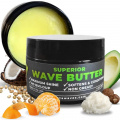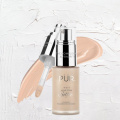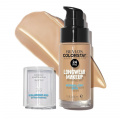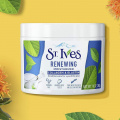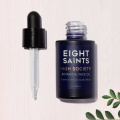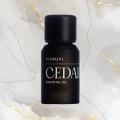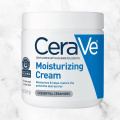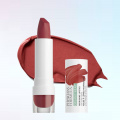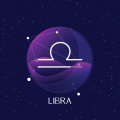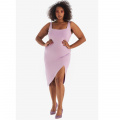Your ULTIMATE guide to everything PMS: Symptoms, how to manage it & more
As a part of the monthly occurrence, premenstrual syndrome is a condition that affects everything from emotions to eating patterns.

What’s PMS?
A. Premenstrual syndrome (PMS) is a condition that affects a woman's emotions, physical health, and behaviour during certain days of the menstrual cycle.
Symptoms of PMS:
Abdominal bloating and pain, Irregular bowel movement
Sore breasts, acne
Food cravings, especially for sweets
Headaches, sensitivity to light or sound
Fatigue, irritability, changes in sleep patterns,
anxiety, depression, sadness, emotional outbursts
How can we look after ourselves through it?
It is well known that we don't feel good when menstruating and for a few days prior. From cramps to bloating, fatigue, mood swings, and more, this can be a tough period to get through.
Here are some of the best ways to treat yourself with a bit of extra care while on your menstrual period and in the days prior.

Eat right: It’s common to crave carbs, sugary or salty foods as you near your period but these can cause your energy levels to go down and also contribute to mood swings, bloating, and water retention. Instead of reaching for cookies and other empty carbohydrates, focus on good quality protein and healthy fat to keep your blood sugar levels, fibre to encourage healthy digestion and reduce bloating, and plenty of water, which can help with digestion, hormone regulation, and hydration.
Adequate Rest: Getting enough sleep is essential to help you feel more energized and help stabilize your hormones. Create an environment that encourages you to stay well-rested, make sure your room is at a comfortable temperature, power down screens a few hours before you want to fall asleep.
Try light workouts: Some amount of light workouts can help ease your PMS symptoms. Only opt for workouts that are in sync with your energy levels. A light walk or even some light yoga can help you in easing your period pains.

Consider Journaling or using a period tracker: Schedule a few minutes out of your day to journal your thoughts and emotions. You can also log all of the symptoms you’ve experienced and how they affected your activity throughout the day. This helps you to not only see the patterns of activity during your period but also stay kind to yourself during this time. If journaling isn’t your cup of tea, you could also consider using a period tracking app!
What are some natural ways to treat symptoms?
A variety of remedies are often used to relieve PMS symptoms, from eating certain foods to exercising. Here are some of the commonly used remedies.
Calcium: Although a variety of supplements have been suggested to relieve PMS symptoms, at this time only calcium has demonstrated a consistent therapeutic benefit. According to a number of researches done it was found that women who had a high intake of calcium from food sources had a significantly lower risk of PMS. Foods’ high in calcium include:
a ) Dairy products
b ) Sesame seeds
c )Almonds

Vitamin D: Studies have also found that women who had a high intake of vitamin D (a vitamin that regulates calcium absorption and metabolism) from food sources corresponding to approximately 400 IU per day had a lower risk of PMS.
Chasteberry: This has been used since ancient times. It helps reduce physical symptoms like breast tenderness, bloating and fluid retention, and also helps in bettering moodiness associated with PMS
Dong Quai: Dong Quai is a plant, the root of which is used to make medicine. It helps relieve symptoms such as hot flashes. It is also a wonder herb for the female system. It's a multi-purpose remedy used to treat menstrual cramps, lack of menstruation, frequent menstruation, menopausal hot flashes, and balancing female reproductive processes. Vitamin B6: Vitamin B-6 is a very important vitamin involved in the production of neurotransmitters, which play a big role in regulating one's mood. It regulates serotonin and norepinephrine in your body, which are two mood-boosting and stress-relieving hormones. Daily vitamin B-6 supplement helps with many of the psychological symptoms of PMS, including moodiness, irritability, and anxiety.
Lemon Balm: It contains certain compounds that increase gamma-aminobutyric acid (GABA)–a neurotransmitter that reduces anxiety, irritability and depression–which tends to be lower in women with premenstrual syndrome. It has mildly sedating compounds, which curb stress, restlessness and improve sleep–which, in turn, boosts mood and daytime energy and reduces sensitivity to pain. It improves mood, concentration and memory by binding to certain receptors in the brain It also reduces flatulence, indigestion and digestive cramping by calming the digestive tract.

Easy tips to keep our menstrual hygiene in check
Some of the tips that you can certainly try are-
Do not use pads or tampons for long: This is a potentially harmful practice. Once the menstrual blood leaves the body, it begins to decompose gradually. Keeping the used pad close to the vaginal area and skin for a long time exposes the area to bacterial infection and itching. Tampons, especially, should not be left inside the body for more than four hours to prevent toxic shock syndrome.
Keep the pubic area clean: Menstrual periods can be messy. It does not help if you have pubic hair that traps some of the blood as it flows out of the body. Besides, it can cause infections with inadequate daily cleaning. Before your period begins, clip your pubic hair as close to the skin as possible. When your period starts, make sure to take a wash twice a day.
Stay away from vaginal cleansers and douches: Using vaginal washes and douches during your period is a strict ‘No’. Not only is there a question mark over the efficacy of vaginal washing liquids, but the use of douches during this time can also cause injury to the private parts, and spread infection.
Discard the sanitary napkin properly: Disposing of off tampons and sanitary napkins properly is an important step. Wrap them properly before throwing them away, so the bacteria and infections do not spread. Make sure you don't flush them, since that will block the toilet causing the water to back up, spreading the bacteria all over it. Wash your hands properly after wrapping and discarding the used tampons and sanitary napkins, since you're likely to touch the stained area while wrapping them.
About the author: Ackshay Jain, Co-Founder- The Healthy Company
ALSO READ: World Blood Donor Day 2021: Some common myths about blood donation





 JOIN OUR WHATSAPP CHANNEL
JOIN OUR WHATSAPP CHANNEL





































